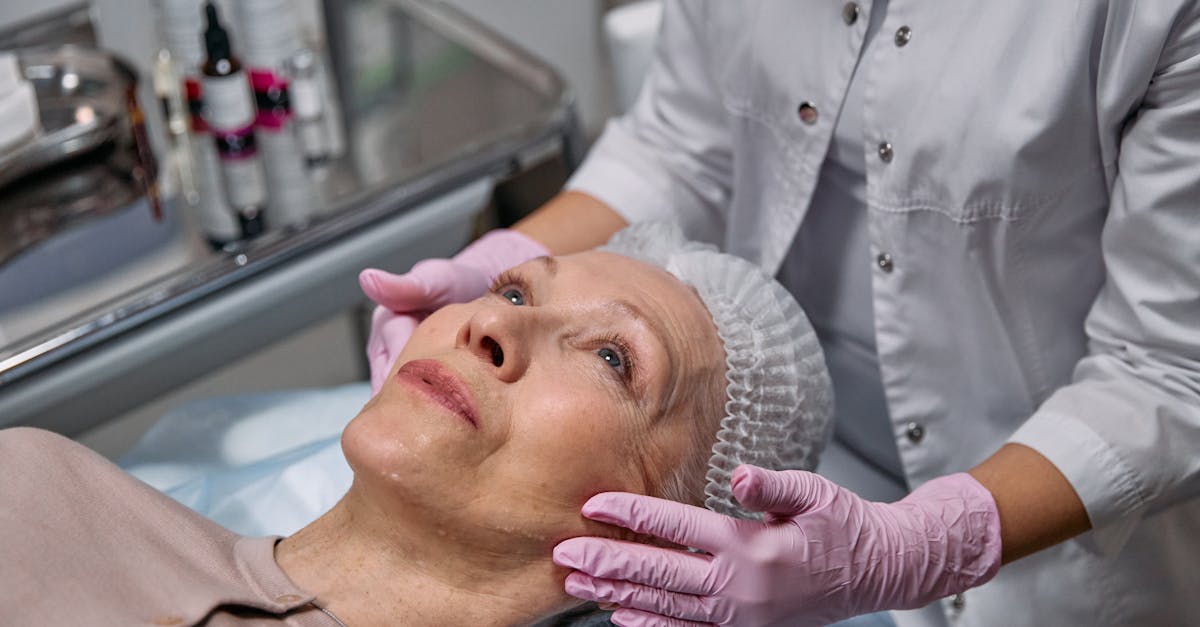
Understanding the Role of Retinoids in Anti-Aging TreatmentsPreparing for a Chemical Peel
Before undergoing a chemical peel treatment, it is important to prepare your skin adequately to ensure optimal results. Your dermatologist will provide you with specific instructions tailored to your skin type and the type of chemical peel being used. Typically, you will be advised to discontinue the use of any harsh skincare products or treatments that could potentially irritate your skin in the days leading up to the peel. Additionally, it is crucial to protect your skin from excessive sun exposure prior to the chemical peel. Sunburned or tanned skin can be more sensitive during the procedure and may increase the risk of post-peel complications. Applying a broad-spectrum sunscreen daily and wearing protective clothing and accessories when outdoors can help shield your skin from harmful UV rays and prepare it for the chemical peel procedure. Skin Preparation Tips protective clothing like hats and sunglasses when using retinoid products regularly.While most skin types can benefit from chemical peels, it is essential to consult with a skincare professional to determine the most suitable type and strength of peel for your skin type and concerns.
Individuals using retinoids should be vigilant about their sun exposure and be proactive in protecting their skin from UV rays. Limiting time spent outdoors during peak sunlight hours and reapplying sunscreen throughout the day can help minimize the risk of photosensitivity reactions. Consulting with a dermatologist can also provide personalized recommendations on how to incorporate retinoids safely into your skincare routine while minimizing the risk of sun damage.Is there any downtime after a chemical peel?
Incorporating Retinoids into a Comprehensive Skincare RegimenDepending on the strength of the peel, there may be some downtime involved as the skin goes through the peeling process. It is crucial to follow the aftercare instructions provided by your skincare specialist to ensure optimal results and minimize any potential side effects.
When it comes to incorporating retinoids into your skincare regimen, it is essential to start slow and gradually increase the frequency of use. Begin by applying a pea-sized amount of retinoid cream or serum to clean, dry skin every other night. This allows your skin to acclimate to the product and minimizes the risk of irritation. Over time, you can increase the frequency of application to every night, depending on how your skin responds.How often should I get a chemical peel for skin rejuvenation?
It is also crucial to use a sunscreen with a high SPF during the day when using retinoids in your nighttime routine. Retinoids can increase skin sensitivity to sunlight, making it more prone to damage. By applying sunscreen daily, you protect your skin from harmful UV rays and maintain the effectiveness of the retinoid treatment. Remember that consistency is key when incorporating retinoids into your skincare routine to achieve optimal results in improving skin texture and reducing the signs of aging.The frequency of chemical peel treatments can vary depending on your skin concerns and the type of peel used. It is generally recommended to space treatments 4-6 weeks apart to allow the skin to fully heal and regenerate between sessions. Consulting with a skincare professional can help determine the ideal treatment intervals for your skin.
Combination with Hyaluronic Acid
Combining retinoids with hyaluronic acid in your skincare routine can be highly beneficial. Hyaluronic acid is known for its ability to attract and retain moisture, making it a potent hydrating agent. When paired with retinoids, which can sometimes cause dryness and irritation, hyaluronic acid helps to keep the skin well-hydrated and balanced. This combination can help mitigate any potential side effects of retinoids while still reaping all the benefits they offer for anti-aging.Related Links
Furthermore, hyaluronic acid can enhance the overall efficacy of retinoids. By hydrating the skin and creating a moisture barrier, hyaluronic acid can help optimize the absorption of retinoids into the skin. This can lead to improved results in addressing fine lines, wrinkles, and overall skin texture. The synergy between retinoids and hyaluronic acid makes them a powerful duo in combating the signs of aging and achieving a more youthful complexion.Chemical Peel Aftercare: Dos and Don'ts
FAQSUnderstanding Different Types of Chemical Peels
What are retinoids and how do they work in anti-aging treatments?
Retinoids are derivatives of vitamin A that work by increasing cell turnover, promoting collagen production, and reducing the appearance of wrinkles and fine lines in anti-aging treatments.
Can retinoids help increase skin elasticity?
Yes, retinoids are known to boost skin elasticity by stimulating collagen synthesis and improving skin texture, making them an effective ingredient in anti-aging regimens.
What are some common myths about retinoids and anti-aging treatments?
One common myth is that retinoids make the skin more sensitive to the sun, but this can be managed by using sunscreen. Another myth is that retinoids are only suitable for mature skin, whereas they can be beneficial for a wide range of age groups.
Is there a risk of photosensitivity when using retinoids in anti-aging treatments?
Yes, retinoids can increase the skin's sensitivity to the sun, so it is crucial to apply sunscreen daily and avoid prolonged sun exposure when using these products to minimize the risk of sun damage.
How can retinoids be incorporated into a comprehensive skincare regimen?
Retinoids can be incorporated into a skincare routine by starting with a low concentration and gradually increasing usage frequency. They can also be combined with hydrating ingredients like hyaluronic acid to minimize potential dryness or irritation.
Terms of Use